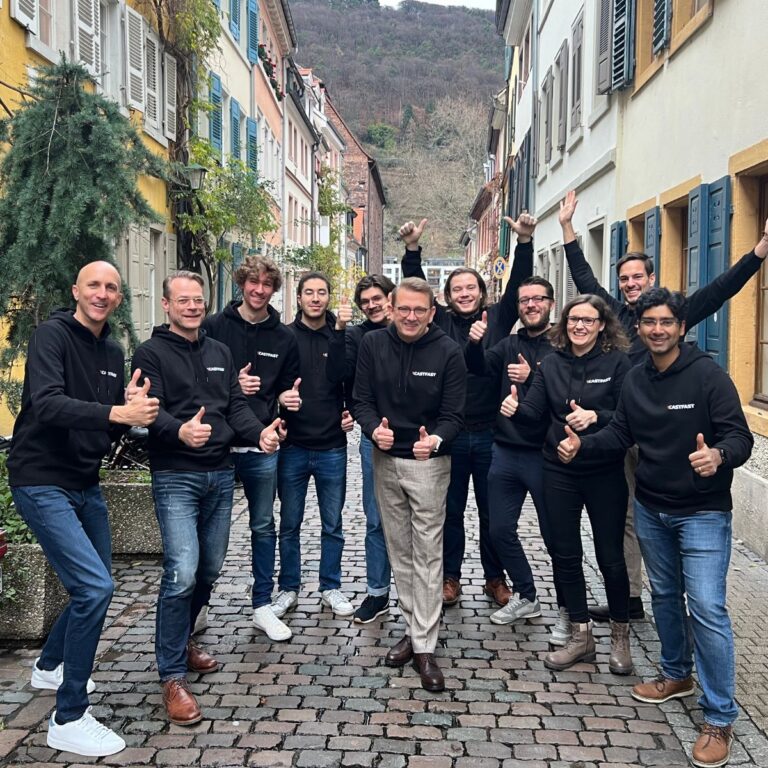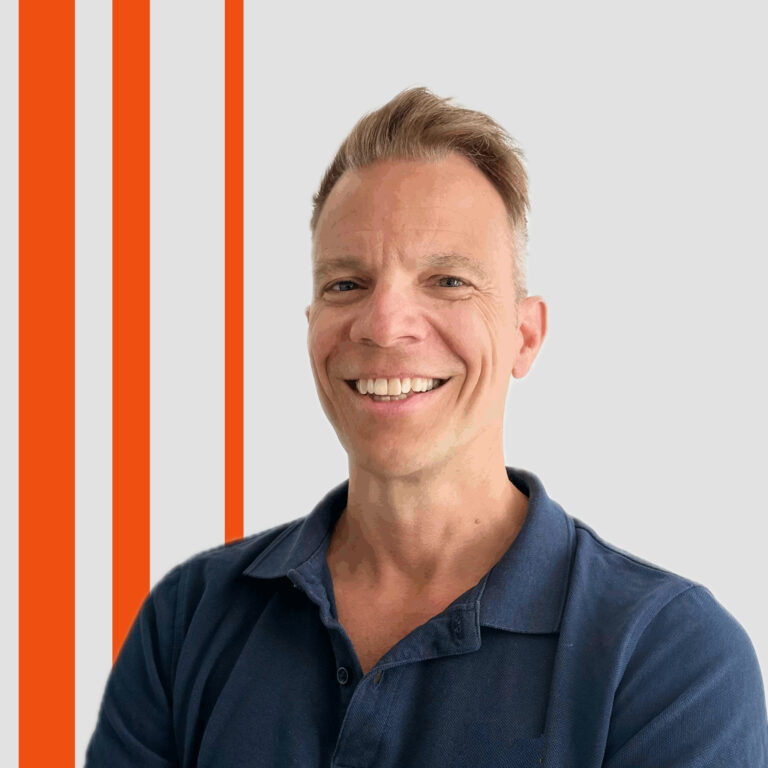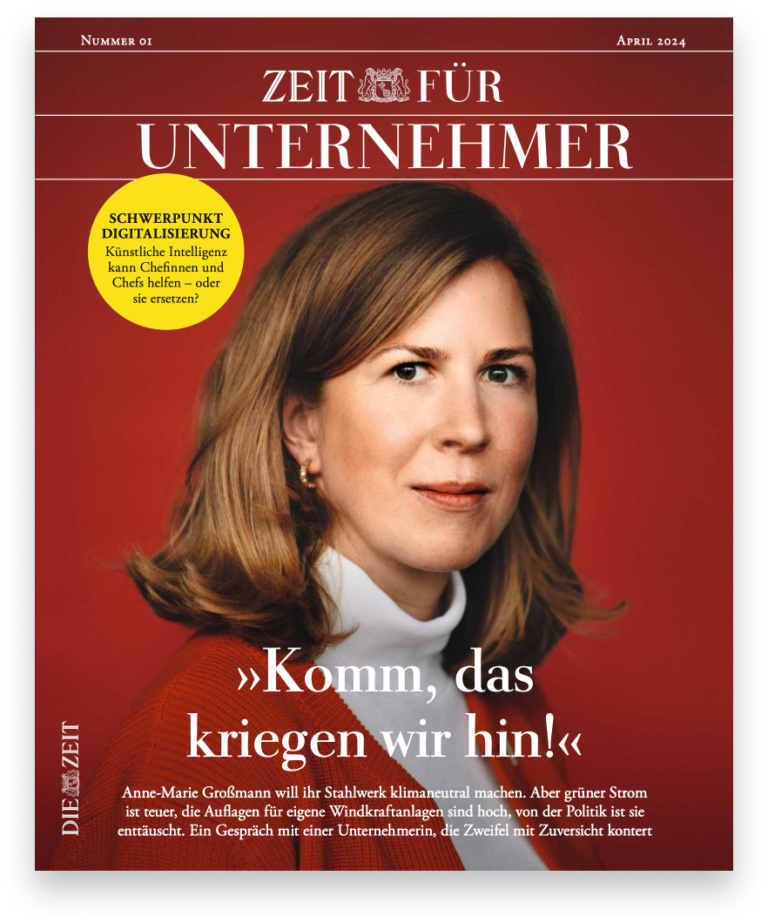


The German SME sector is considered the backbone of the economy and is also a driver of sustainable innovation. The implementation of new business models repeatedly presents SMEs with challenges that encompass both internal and external factors:
Compared to large corporations, SMEs often have limited financial, human and technological resources. Allocating these resources to innovation projects can be difficult, especially when day-to-day business takes priority and short-term financial commitments have to be met. This includes not least the capacities of the management itself.
The rapid development of new technologies requires specific expertise that is often not available in medium-sized companies. The lack of specialists can delay or prevent the development and implementation of innovation. In addition, employees in the company do not always correspond to the ideal image of a start-up entrepreneur in order to identify, validate and implement ideas pragmatically and quickly.
Many SMEs are family businesses. For them, the preservation of the company and job security are paramount. Large investments in unproven technologies or business models are carefully weighed up and, in case of doubt, not pursued for fear of making serious mistakes and changes.
Traditional corporate cultures and structures can limit the flexibility and agility required to adapt quickly to market changes and implement innovation projects. Rigid hierarchies and processes can inhibit the willingness to experiment and find creative solutions.
Even if an innovation has been successfully developed, the challenges of market access and scaling can be considerable for SMEs. The development of sales channels, the market launch and the scaling of products or services require additional resources and strategic expertise.
In some industries, strict regulatory requirements can make it difficult to develop and launch new products or services. Navigating complex regulatory landscapes can be time-consuming and costly.
Venture building is a discipline that has emerged over the last decade and allows SMEs to overcome the challenges mentioned above and accelerate the implementation of innovations.
For SMEs, venture building provides a customized framework that enables them to drive innovation effectively. The process supports SMEs in this:
An in-depth analysis identifies untapped potential within the company that can serve as the basis for new business ideas. Every company has obvious and non-obvious assets that should be used for new business models in order to secure a competitive advantage over the competition.
By developing an MVP and quick validation sprints, companies can quickly test and adapt their ideas on the market to achieve a strong product-market fit. And all without investing large budgets.
Venture building makes it possible to develop innovations in a controlled environment before significant resources are used for scaling. Best practices as well as the network and contacts are shared.
The focus on the commercialization and integration of the new venture into the existing business ensures that growth is sustainable in the long term.
Venture building thus offers a particularly structured, low-risk method of promoting sustainable innovation, opening up new business areas and securing long-term growth through sound business models, which makes it particularly attractive for medium-sized companies.
Eisbach Partners has been one of the leading advisors from Munich for 6 years. With a focus on venture building, a large number of projects have already been implemented. One example is the transformation in the casting industry at Römheld & Moelle, which was accompanied by Eisbach.
Römheld & Moelle is an iron foundry with a long tradition in Mainz. Faced with high energy costs and intense global competitive pressure, particularly from Turkey and China, the company recognized the need to reinvent itself in order to ensure sustainable growth. During the transformation of Römheld & Moelle to CASTFAST, the company was faced with the challenging task of transferring a traditional foundry business in Mainz into the digital age.
Römheld & Moelle’s response to increasing competitive pressure and high energy costs was to purchase a 3D printer for sand molds and cores, which allows complex castings to be produced without conventional wooden models. At the same time, processes were digitalized in order to speed up the quotation process, for example, which previously took weeks in some cases.
With the new experience and knowledge, the vision for a production platform for cast products took shape. The know-how acquired had potential for more.
We are developing an on-demand platform for the emission-reduced, digitalized production of industrial castings. Eisbach Partners not only supports the development of CastFast, but also provides valuable content-related work.
Rudi Riedel, CEO, Römheld & Moelle Eisengießerei GmbH
Eisbach Partners led the transformation and implemented the venture building process with the following approach.

The first step was to analyze what capabilities and potential Römheld & Moelle has that can be used for sustainable growth. In the case of Römheld & Moelle, this included, for example, intensive customer interviews, addressing issues such as access to customers, existing infrastructure and the ability to integrate the additive manufacturing process into the processes and structures of the existing full-mold foundry. The asset and potential analysis is one of the most important measures in venture building, as a clear competitive advantage can be secured with existing capabilities (“unfair advantage”).
In the case of Römheld & Moelle, there was already sound preliminary work that could be integrated into the further activities of the first phase (e.g. rough idea of a concept, competitor research and market data) and thus the procedure could be accelerated. At the end of the first phase, there was a detailed concept that defined the CASTFAST product, a concrete assessment of the market potential and a justification as to why CASTFAST could be made a success by Römheld & Moelle.

An agile approach was used to test whether there was demand for the CASTFAST idea. A landing page was created, a marketing budget was allocated for online marketing measures, further interviews were conducted with customers and a lot was learned. Following positive and valuable feedback, the venture was prepared for the official launch. In addition, a business case was calculated, the financial requirements calculated, task profiles and roles and responsibilities defined, a roadmap drawn up and relevant processes and tools defined. After a successful pitch to the advisory board and the private equity company (PE), the way was clear for full implementation.

After validation and approval, further implementation was driven forward. In the case of CASTFAST, an independent limited company was founded, which is solely owned by the iron foundry. Legal issues were dealt with (e.g. drawing up an asset transfer agreement, employment contracts for employees, registration obligations) and sources of funding were secured. Fundamental questions that need to be asked here include, for example, the objectives pursued with a venture (e.g. a targeted exit vs. a strategic long-term project of the parent company).
However, a spin-off in the form of a GmbH is not always expedient and must be carefully evaluated, as the chosen legal form can also have an influence on employee incentive mechanisms. In the final and third phase of the venture building process, the venture learns to “fly”. Defined goals must be achieved and tracked and the marketing and sales strategy must be continuously reviewed. The venture must be prepared for scaling so that processes and structures can grow with increasing turnover. This is the moment when an experienced venture builder increasingly fades into the background and typically only shares sparring and best practices on selected topics.

“One important aspect that must always be given sufficient consideration in projects is the human factor.”
The venture team must form a cohesive unit, celebrate successes and support each other. It is no coincidence that there is talk of a start-up mentality, which can pose a challenge for experienced employees of the parent company who move to the venture. This means rolling up your sleeves and finding pragmatic solutions. The success of any venture stands and falls with the people who want to drive it forward.

Please also read the interview with the managing director of the Römheld and Moelle iron foundry, Mr. Riedel on Zeit für Unternehmer.
The result is CASTFAST, an on-demand manufacturing platform in the casting sector that was founded in 2023, is growing successfully and meets customer needs.
We wish the team continued success and look forward to achieving the next milestones set.
eisbach partners is a consulting firm specializing in sustainable growth, helping companies to generate long-term and renewable business growth without compromising the environment and quality of life. They work with innovation-oriented leaders of large corporations and successful mid-sized companies to identify new opportunities, generate initial revenues and deliver sustainable growth. eisbach partners takes an individual and tailored entrepreneurial approach, based on their experience as successful entrepreneurs and consultants, to work side-by-side with their clients to mobilize their untapped potential.
Römheld & Moelle is a manufacturer of iron castings and provider of related ancillary services for sectors such as mechanical engineering, special machine construction and the automotive industry. The company specializes in the production of prototypes, individual parts and small series, using industry- and customer-specific material variants or alloys. It is characterized by the precise delivery of large and complex castings, which are produced exactly according to customer requirements and on schedule for the respective projects. The focus is on the quality of the initial design in order to ensure smooth and optimal integration of the cast parts into the project process. The company is based in Mainz and was founded in 1859.
CASTFAST combines decades of foundry expertise with advanced 3D sand printing technology to revolutionize the casting process. This combination enables the fast and precise production of castings without traditional patterns, which not only reduces machining and material requirements, but also enables complex parts with superior quality. The company stands for an innovative combination of traditional casting and digital manufacturing, bringing the foundry process into the 21st century and opening up new possibilities for both customers and foundries. CASTFAST is an on-demand manufacturing platform that enables customers to easily source castings in a wide range of materials.
Interested in working together?